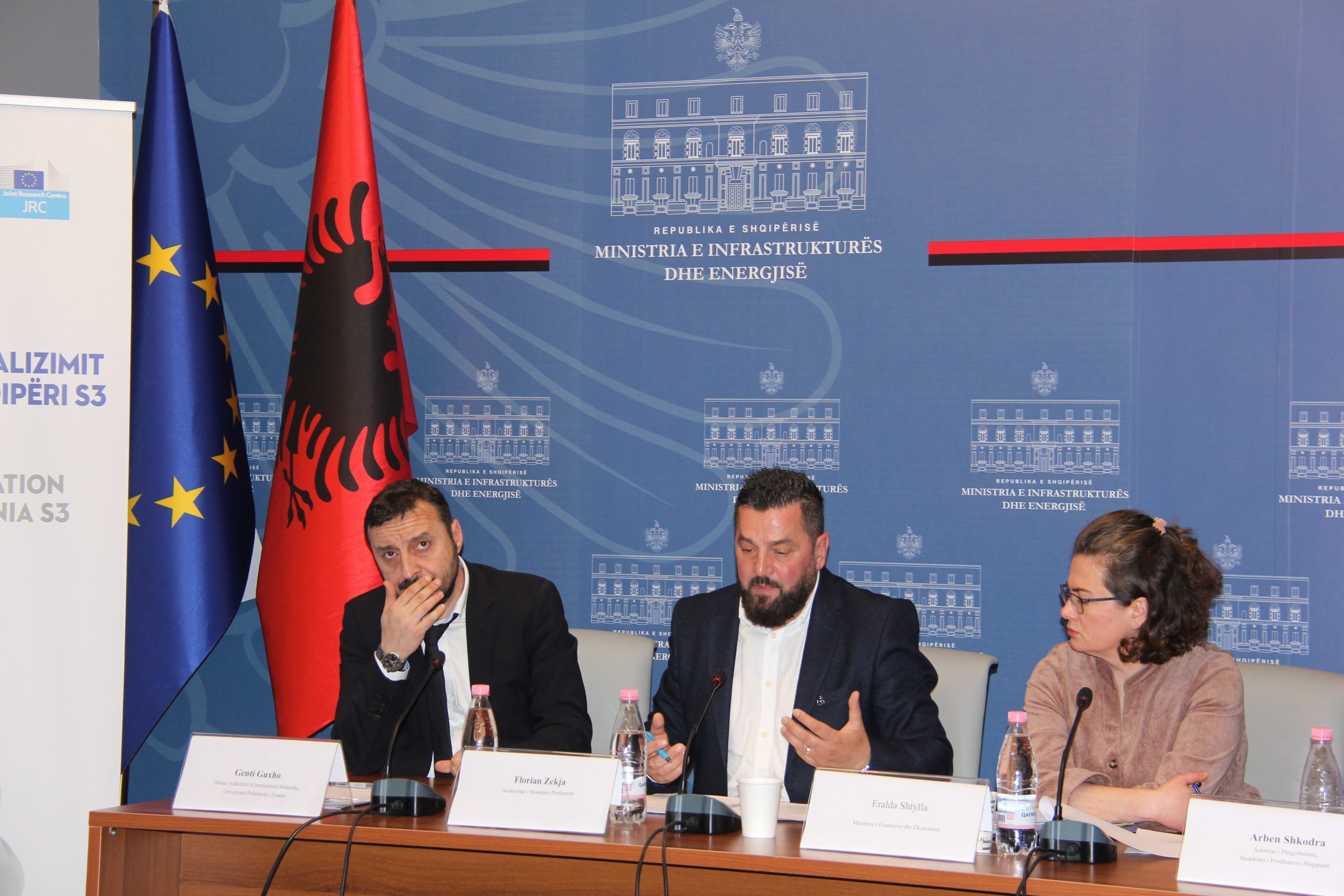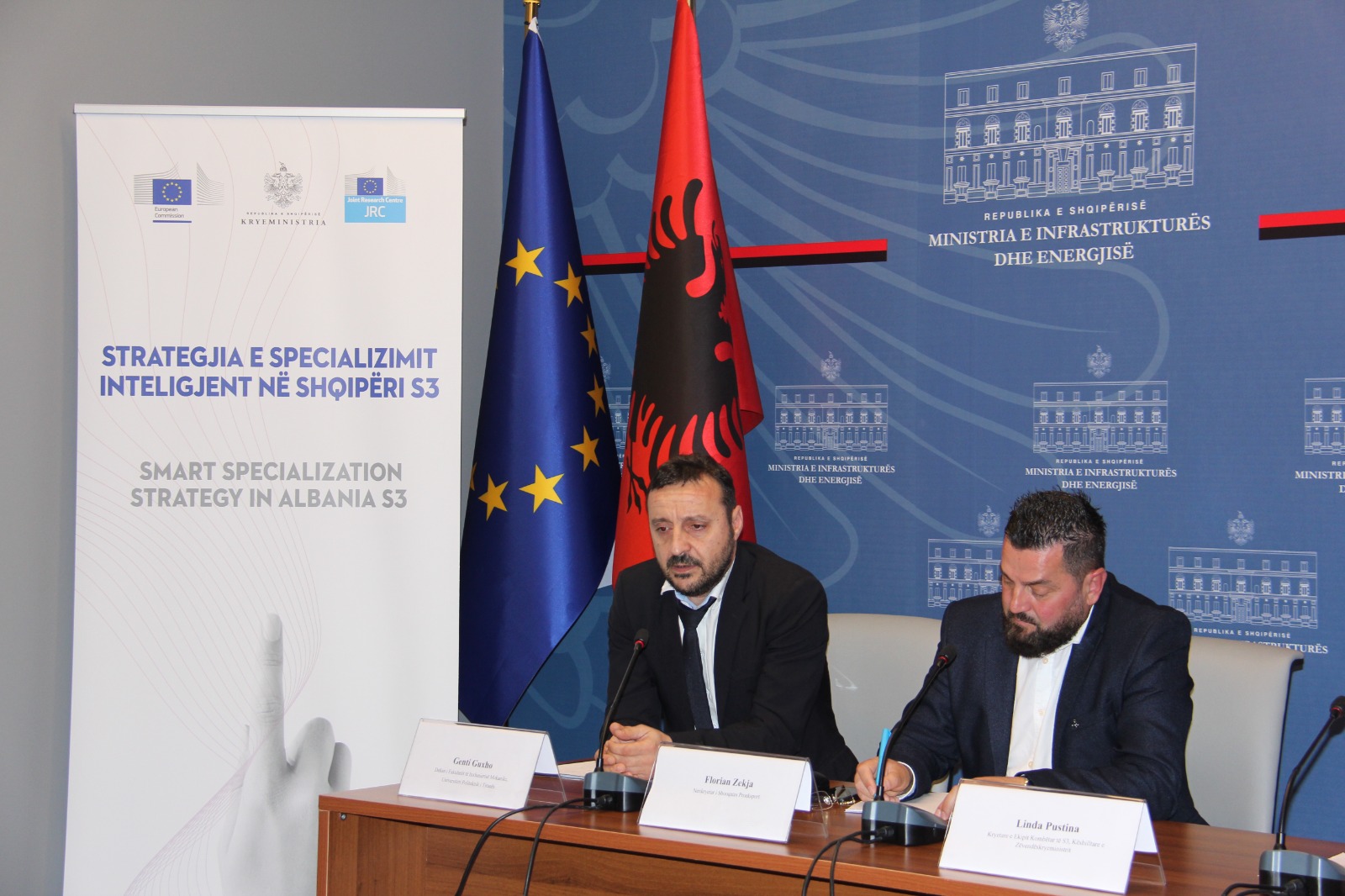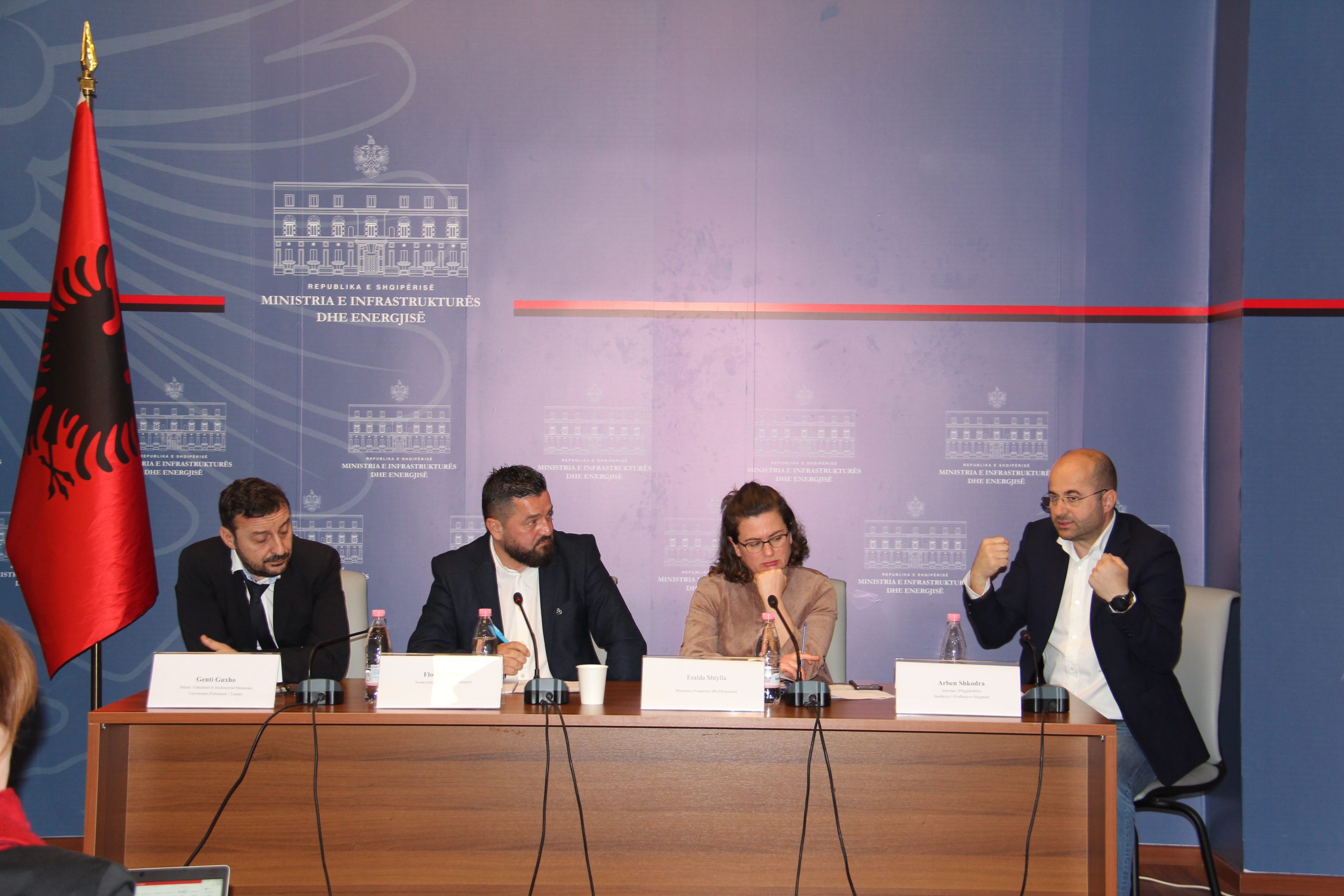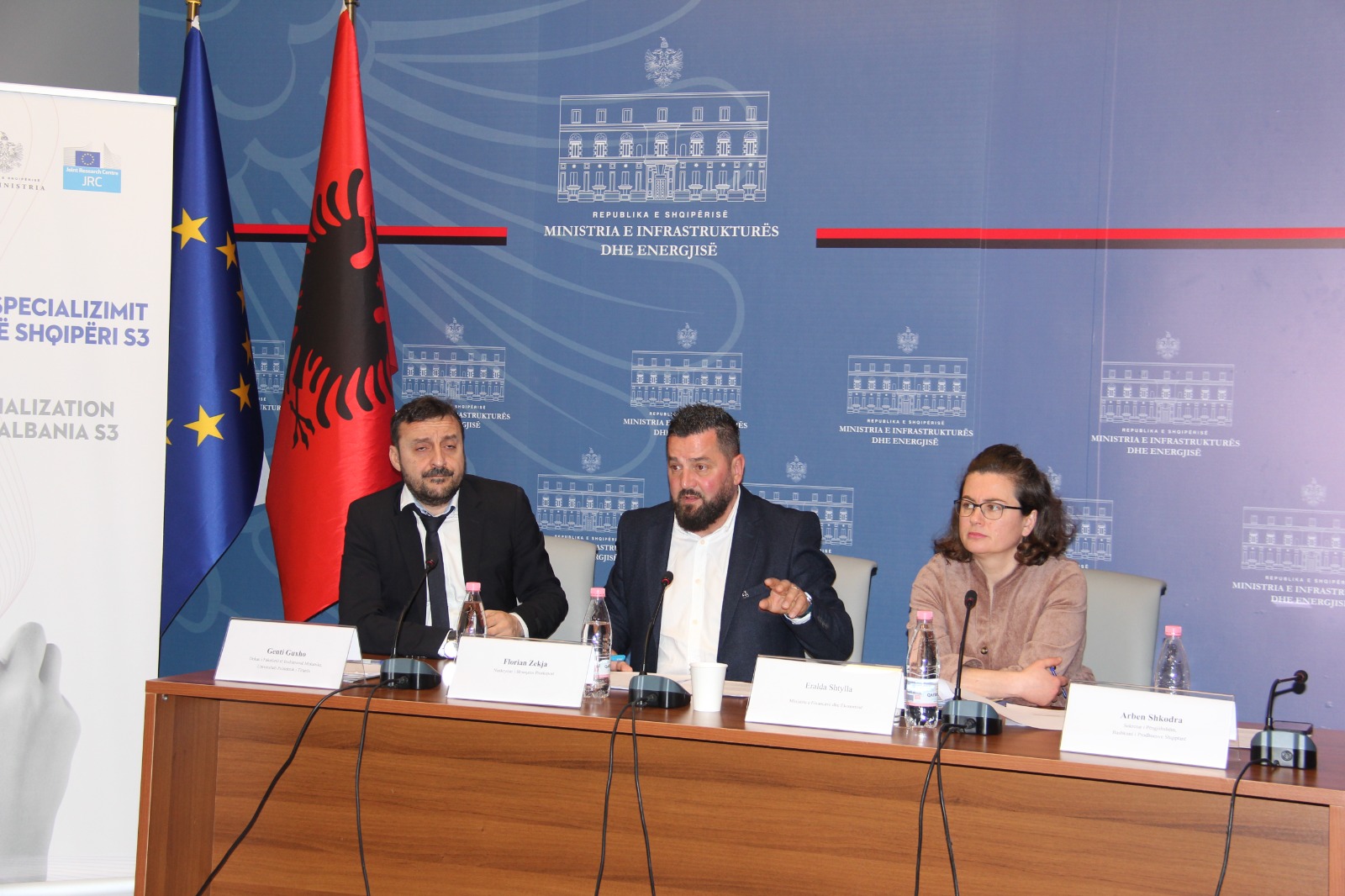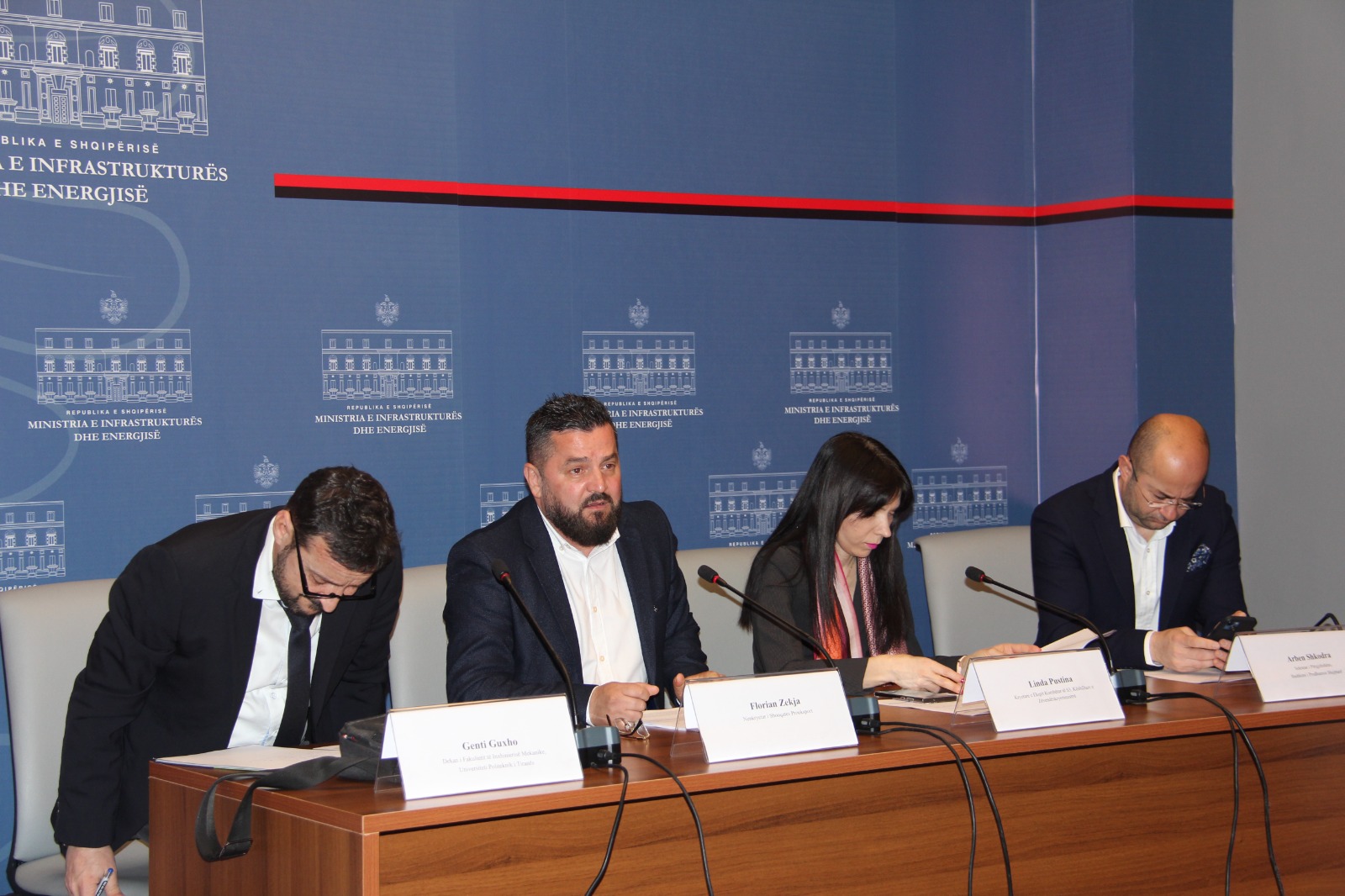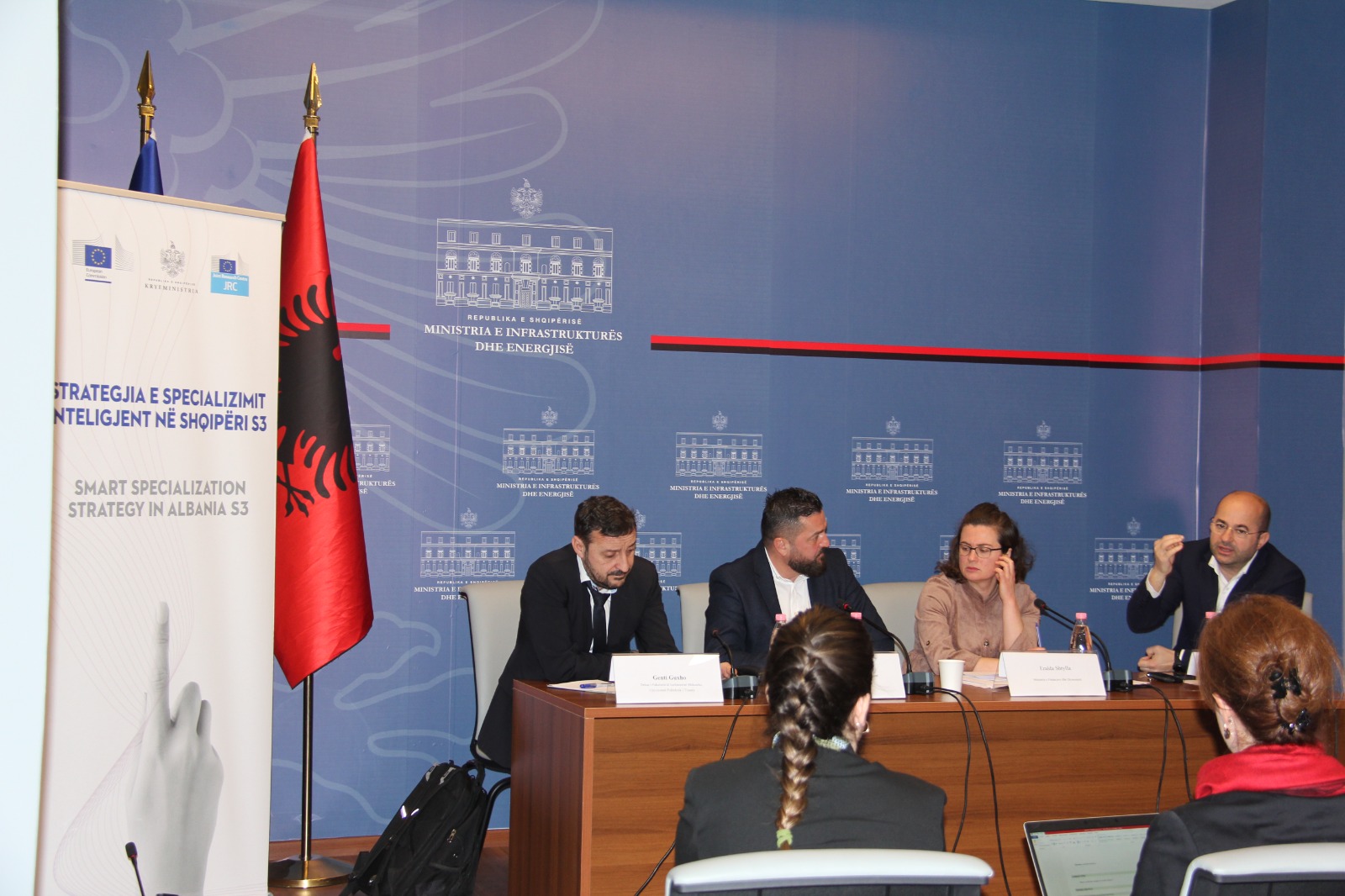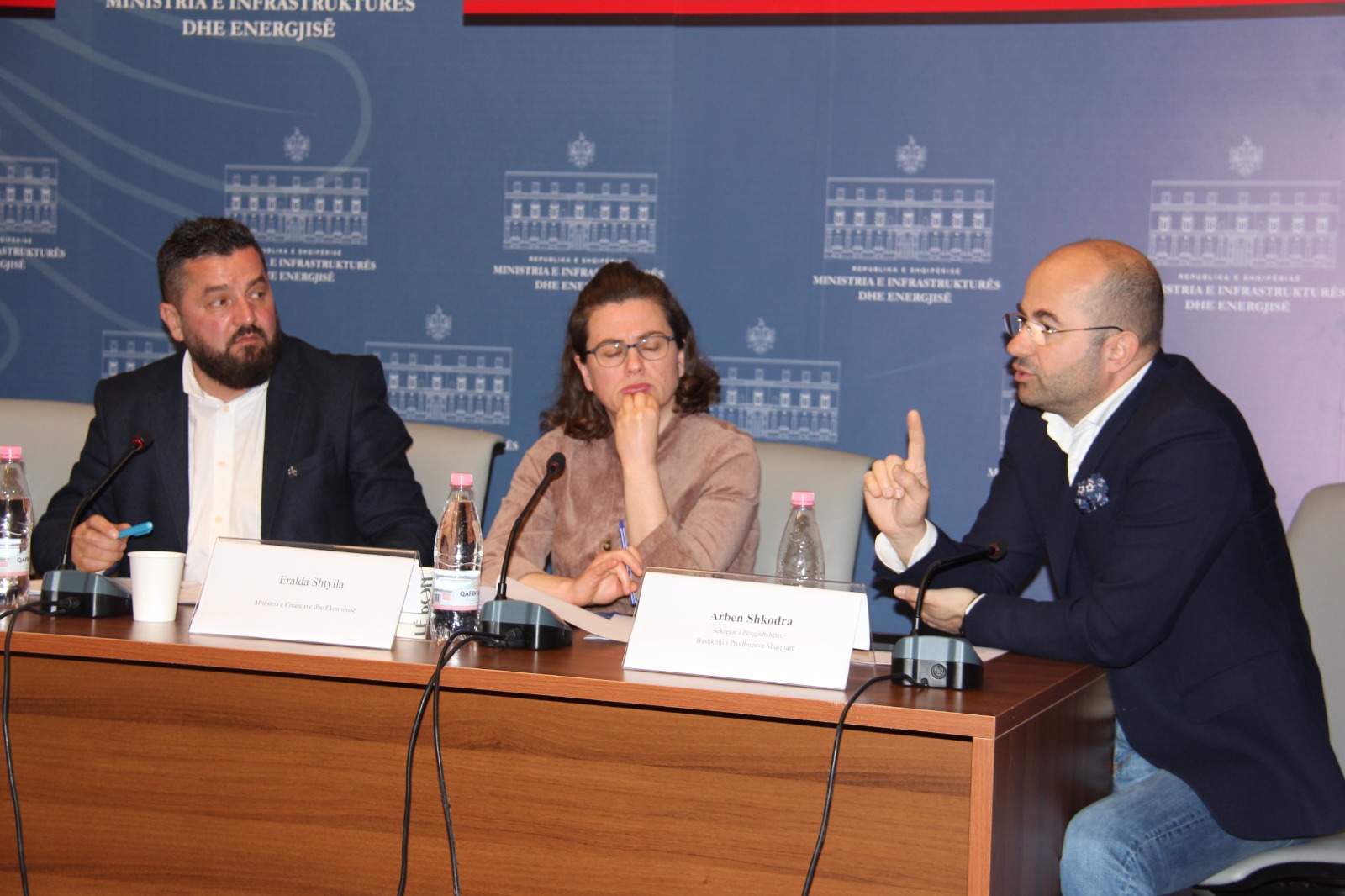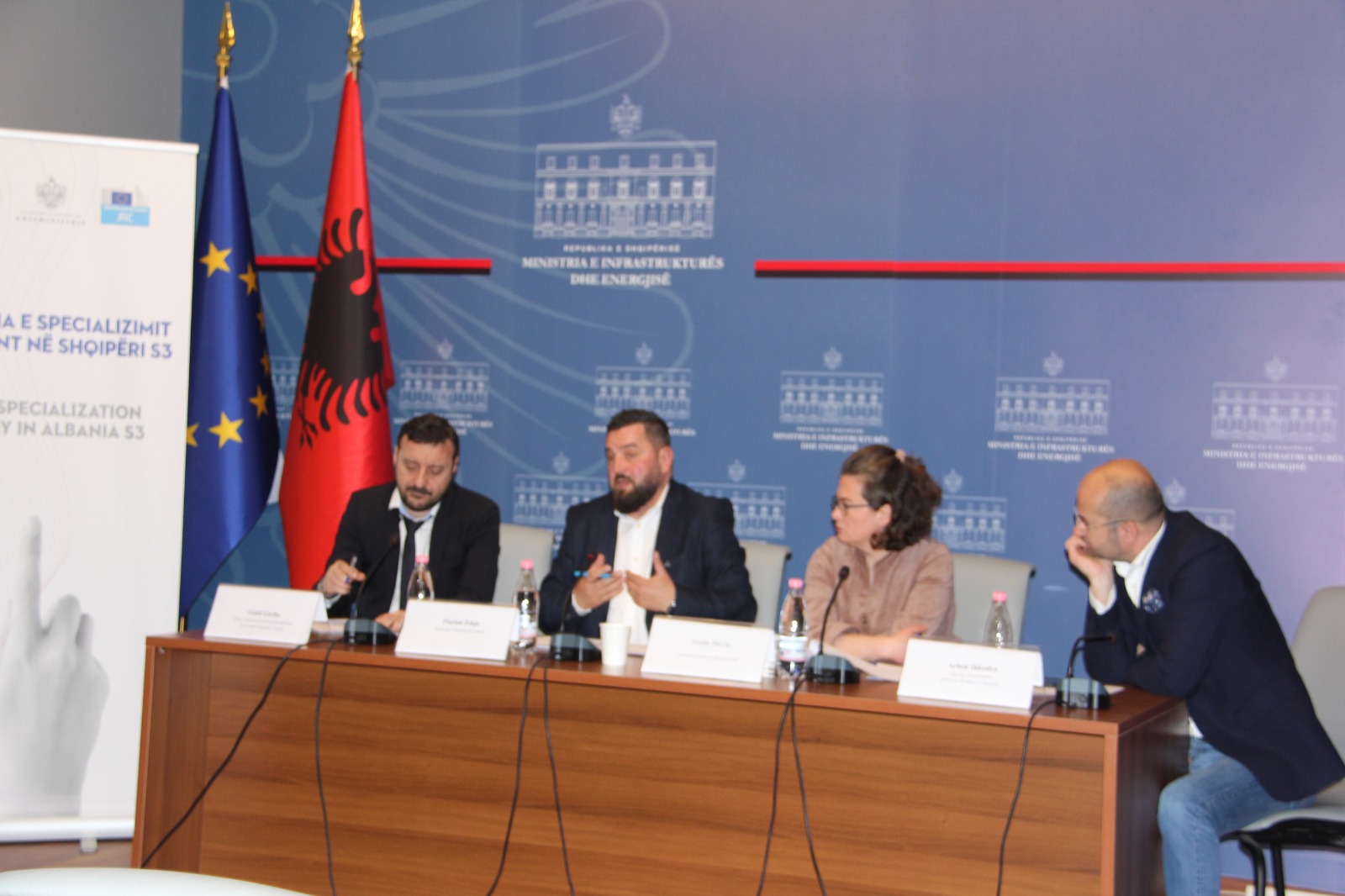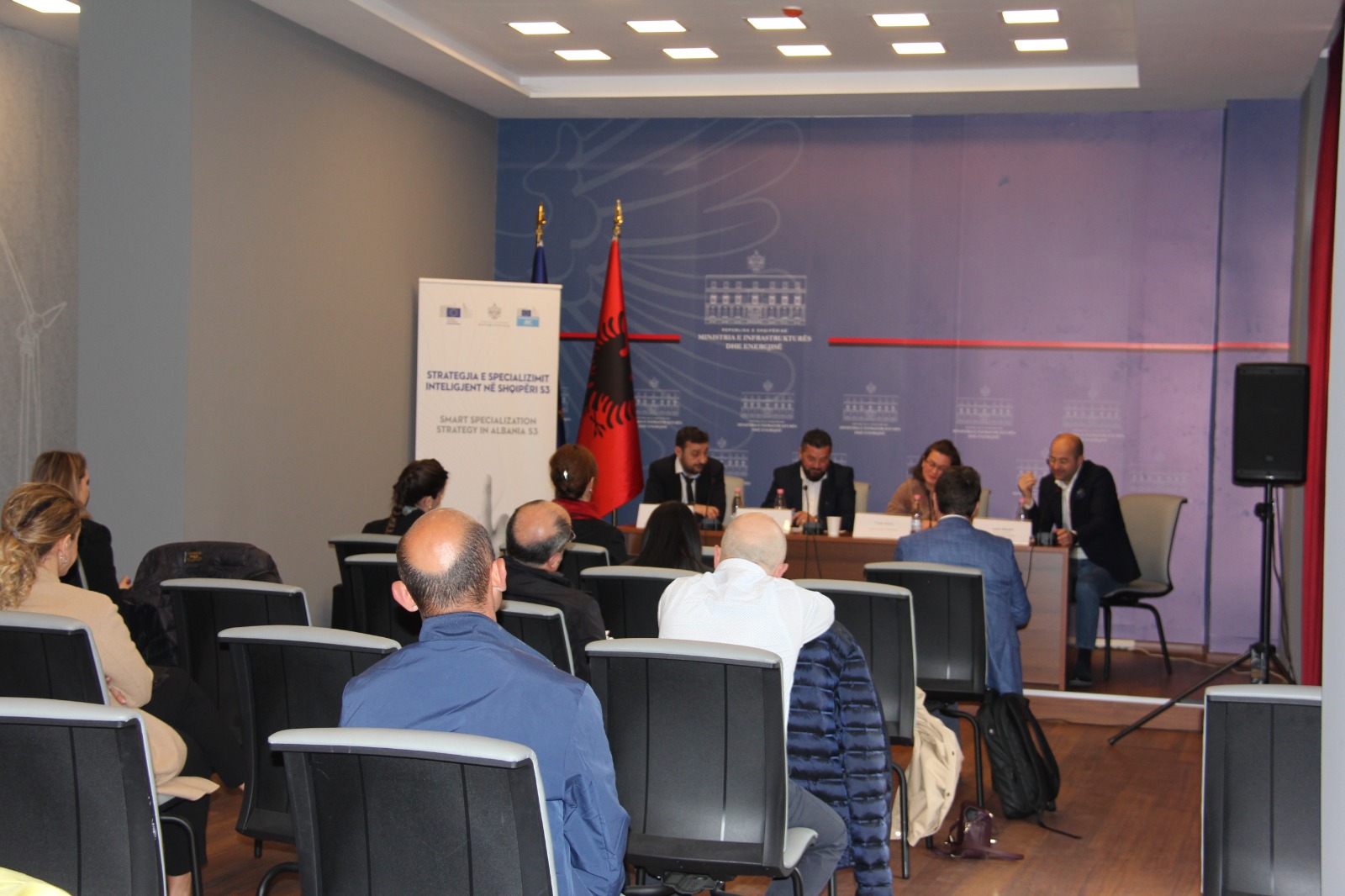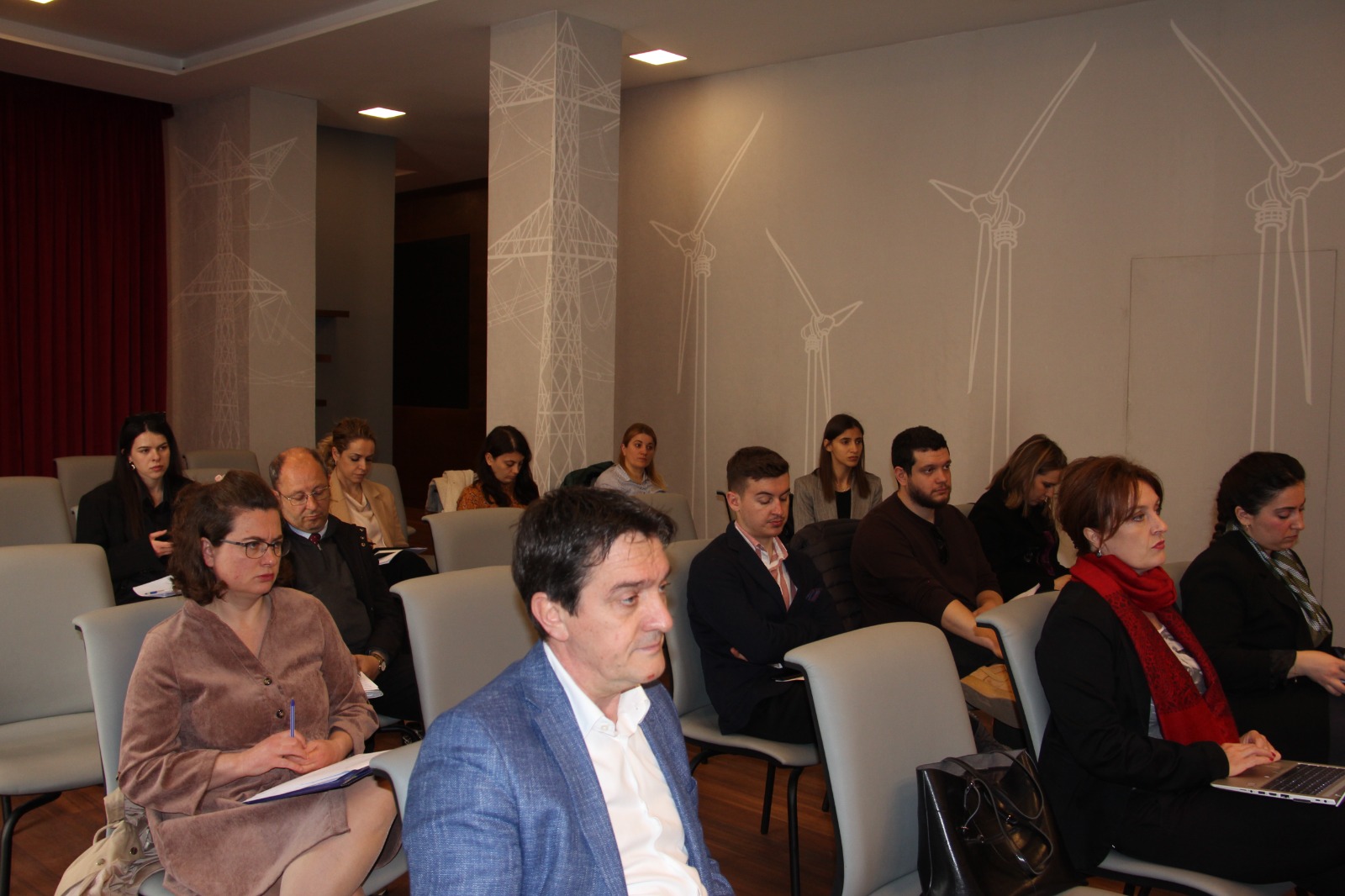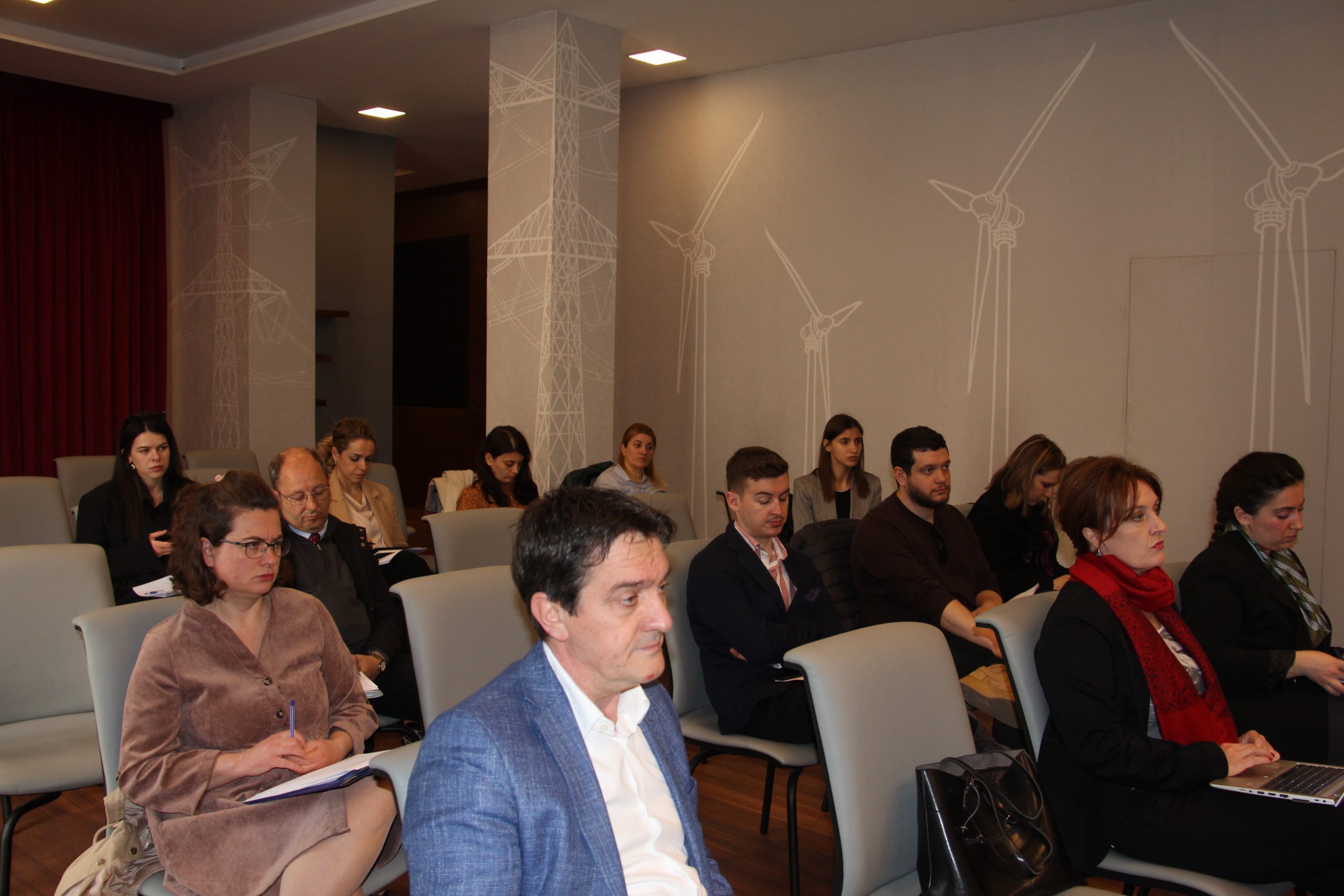Manufacturing has been identified as one of the priority sectors with innovative potential within the framework of the Strategy for Smart Specialization (S3). S3 is part of Albania's obligations in the context of the negotiation process for EU membership, specifically in Chapter 20 "Enterprises and Industrial Policies" and Chapter 25 "Science and Research." It is also part of the EU's agenda for the Western Balkans in the fields of research, innovation, education, culture, youth, and sports for 2021-27, as well as the Western Balkans 2021-24 Action Plan within the Berlin Process. This is a special strategy that involves a different methodological approach compared to other strategies, including the involvement of stakeholders from the early stages of its drafting.
In this context, the National S3 Team, under the special guidance of Deputy Prime Minister Ms. Belinda Balluku, with the support of the Ministry of Infrastructure and Energy and the Union of Albanian Producers, organized a roundtable discussion on "Textile and Leather Processing Industry" on April 24, 2023, following the methodology of the European Commission's Joint Research Centre (JRC). The event took place at the Ministry of Infrastructure and Energy.
The meeting was opened by Ms. Linda Pustina, Chair of the National S3 Team and Advisor to the Deputy Prime Minister, who emphasized the importance of the process and the involvement of all actors from its early stages, as well as the attention that the Albanian government is giving to this process. Mr. Arben Shkodra, Secretary-General of the Union of Albanian Producers and an expert of the National S3 Team, presented the project framework and the EDP (Entrepreneurial Discovery Process). Panel members and discussion facilitators included Ms. Elira Demiraj, Director of the General Directorate of Economic Development and Employment Policies, Ministry of Finance and Economy, Mr. Florian Zekja, Vice President of the Proexport Association, and Mr. Genti Guxho, Dean of the Faculty of Mechanical Engineering, Polytechnic University of Tirana.
This activity brought together around 30 representatives from the business sector, civil society, academia, as well as central and local government to discuss the progress of the sector and its development potential. The discussion primarily focused on:
1. The role of central and local governance in prioritizing and developing this sector in the Republic of Albania.
2. The role of education and training in the Textile and Leather Processing Industry sector.
3. The role of human capital, professional, university, and lifelong education.
4. The digitalization of production processes and continuous investment in machinery and equipment.
5. Processing of "Made in Albania" end products.
6. Green and digital transition.
7. Strengthening cooperation between business and academia.
8. The development of scientific research and innovation to stimulate the economy.
9. Utilizing information technology.
10. The impact of exchange rate fluctuations on the industry, and more.
The discussions held during this meeting will serve as the basis for a national workshop in the field of Manufacturing.





